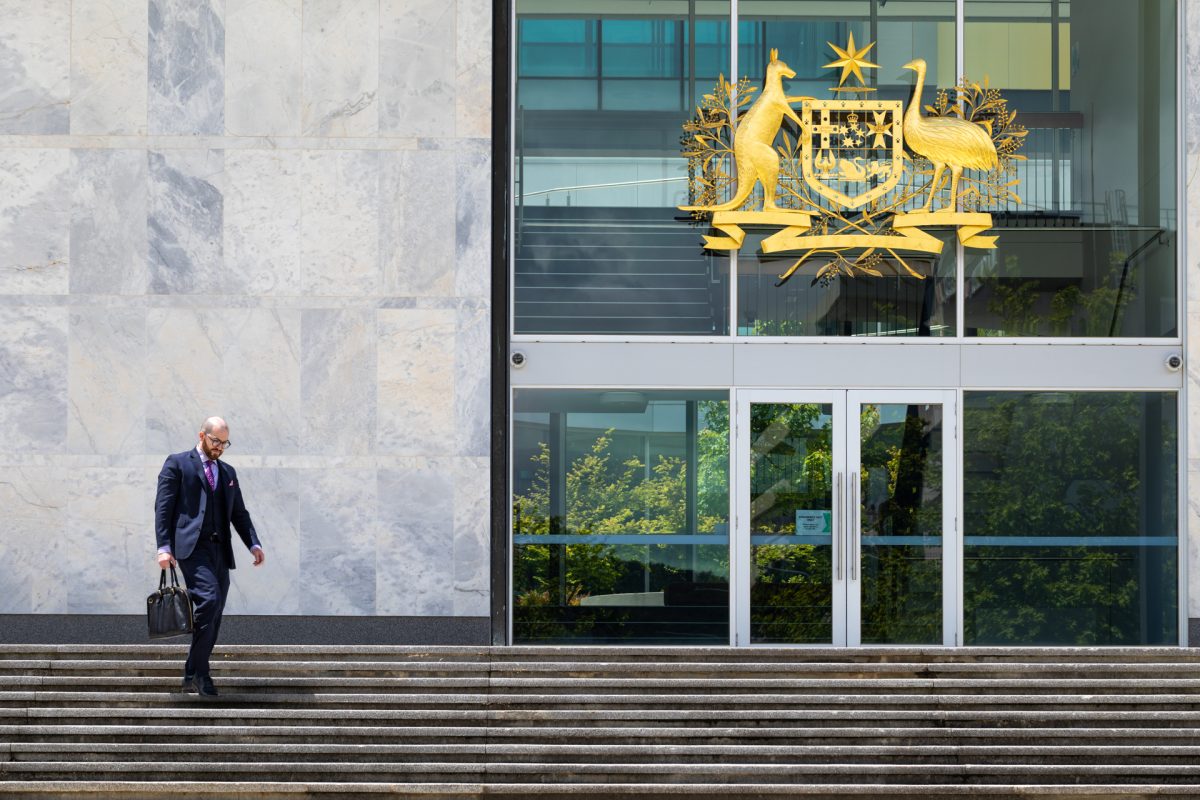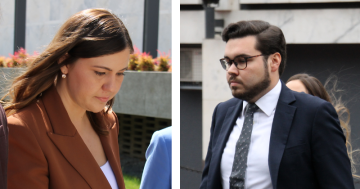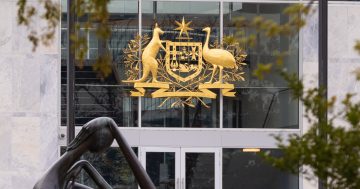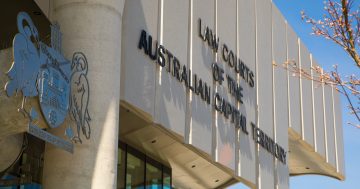
Nine changes have been made to various ACT laws under new legislation, including a new juror misconduct charge and majority verdicts for trials. Photo: Michelle Kroll.
Jurors found to have participated in misconduct can now be punished under ACT law.
The Crimes Legislation Amendment Bill 2023 was passed unanimously in the Legislative Assembly this week. It means jurors who inquire about trial matters or conduct their own research without court authorisation (before being discharged from duties) can face to up two years’ imprisonment.
The crime will be known as “improper inquiry by a juror”.
The law change was made following the mistrial of Bruce Lehrmann, initially accused of raping Brittany Higgins at Parliament House, after a juror brought unauthorised documents into the jury room.
The case against Mr Lehrmann was later discontinued. He has maintained his innocence and no findings have been made against him.
Attorney-General Shane Rattenbury said introducing the offence would bring the ACT into line with other jurisdictions and was intended to impress upon the community the importance of a juror’s obligations.
“If a juror relies on information they have obtained outside the proper process during their deliberations, this undermines the accused’s right to a fair trial,” he said.
“Further, if jurors rely on outside information, the judicial officer may order a mistrial. This is costly to the community and may retraumatise the parties involved in the trial.”
The bill will also bring in majority verdicts for criminal trials when 11 of the 12 jurors are satisfied with a decision.
But verdicts won’t be accepted until at least six hours of deliberations have passed (or a time chosen by the Supreme Court based on the complexity of the case), and the court is satisfied a unanimous verdict won’t be reached upon further consideration.
Mr Rattenbury said this change would help reduce instances of hung juries.
“Hung juries often lead to retrials, which results in delays, increased costs and emotional strain for accused persons, victims and witnesses,” he said.
“In some cases a retrial may not be possible or appropriate, and this can lead to dissatisfaction with the operation of the criminal justice system.
“This reform is intended to reduce resourcing and emotional impacts on parties.”
Majority verdicts won’t be available for Commonwealth offences. These include child sex offences by Australians in foreign countries, cyber crimes committed against Commonwealth government departments, drug importation and exportation, people smuggling, human trafficking, terrorism, fraud against the government (such as Centrelink, Medicare or the Australian Tax Office) and threats made against government officials.
Some in the legal spheres have expressed concerns about the majority verdicts and juror misconduct charge.
Shadow Attorney-General Peter Cain said the government should be “mindful” of potential adverse outcomes of both changes.
“There stands the risk that jurors may be less keen to be part of a jury if they think certain behaviour of theirs might bring about a criminal charge,” he said.
“I do encourage and charge the Attorney-General to ensure the community members who are brought into a jury are given instructions to make sure that anything they do, however unintended, will not incur the wrath of the law.”
Mr Cain also asked the government to monitor the impact of the majority verdict change to ensure there were no “unintended consequences”.
“In this case, of course, the [potential] unintended consequence of conviction of an innocent person,” he said.
Seven other amendments were made to the legislation.
These include shoring up a legal anomaly which imposes inconsistent timelines to review a bail decision and potentially delays a person’s release; removes the requirement of the prosecution to prove beyond reasonable doubt that damage to property doesn’t exceed $5000 when dealing with minor property damage matters; clarification the courts can impose a fine in addition to or instead of any other sentence; and allows the courts to set a non-parole period for offences committed in custody (which currently cannot occur).
Changes will also allow for a statutory review of the Confiscation of Criminal Assets Act and improve the enforceability of infringement notices.
“Overall, this bill makes a range of useful improvements that demonstrate the government’s ongoing commitment to ensuring the criminal laws in the ACT are up to date and effective,” Mr Rattenbury said.




















